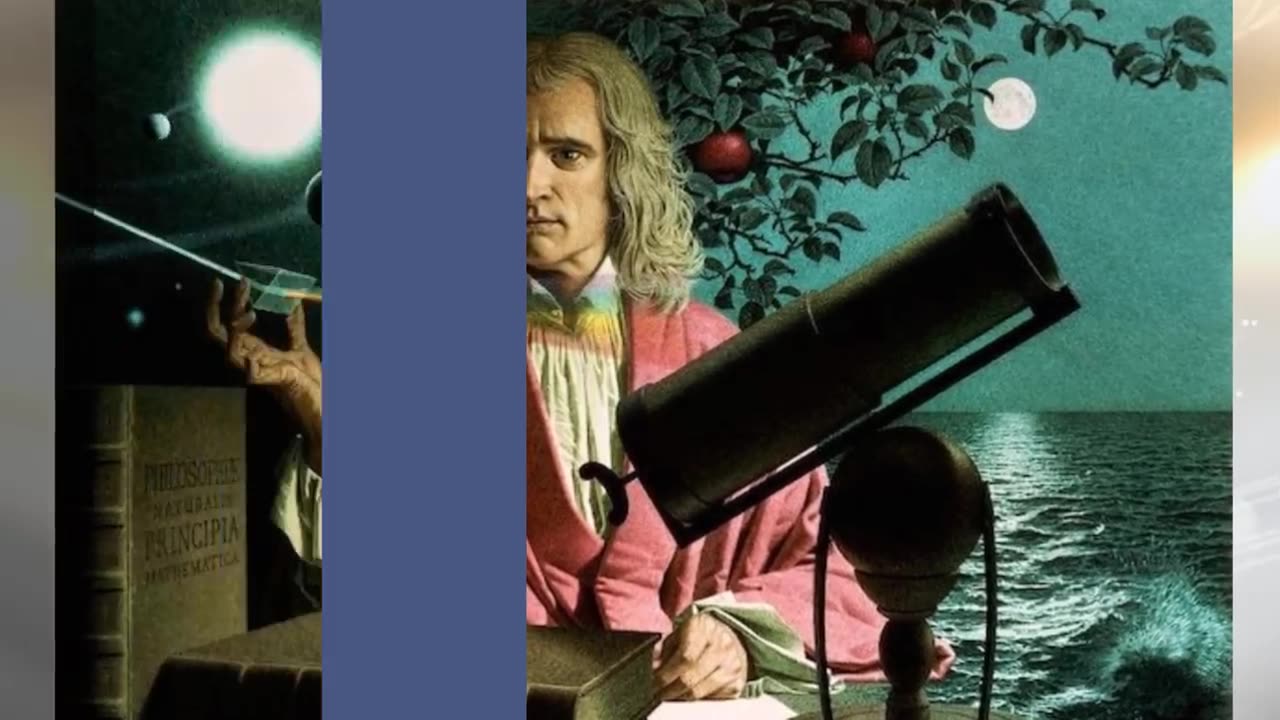Premium Only Content

Top 10 Greatest Mathematicians to Ever Live!
Hello everyone - this video is my personal ranking of the 10 greatest mathematicians of all time. I based this ranking on how significant the discoveries were and the number of discoveries made.
Please check out my other channel linked here: https://www.youtube.com/channel/UCE3pHdwV4-fNKlnlX-zQhJA
0:00 - Intro
0:09 - Number 10
0:55 - Number 9
1:25 - Number 8
2:09 - Number 7
2:53 - Number 6
3:33 - Number 5
4:23 - Number 4
5:18 - Number 3
6:19 - Number 2
7:55 - Number 1
9:09 - Honourable mentions
This video features the following mathematicians:
Sir Isaac Newton, Pierre-Simon Laplace, Leonardo Bigollo Pisano, Gerolamo Cardano, Andrew Wiles, Euclid, Emmy Noether, Srinivasa Ramanujan, Grigori Perelman, Blaise Pascal, Archimedes, René Descartes, Carl Friedrich Gauss,
Aryabhata, Joseph-Louis Lagrange, Évariste Galois, Georg Cantor, Alan Turing, Hypatia, Leonhard Euler, Henri Poincaré, Wilhelm Leibniz , David Hilbert, Paul Erdős, Pierre de Fermat, Terence Tao, Pythagoras and G. F. Bernhard Riemann.
Unfortunately, only 10 of them can be ranked the result will go under the “Honourable Mentions” section at the end of the video.
It was very hard to decide the top 2!
All of the following areas were advanced thanks to all the mathematicians I mentioned and didn’t mention.
General/foundations: General (Includes topics such as recreational mathematics, philosophy of mathematics and mathematical modelling), history and biography, Mathematical logic and foundations, including model theory, computability theory, set theory, proof theory, and algebraic logic
Discrete mathematics/algebra: Combinatorics, Order theory, General algebraic systems, Number theory, Field theory and polynomials, Commutative rings and algebras, Algebraic geometry, Linear and multilinear algebra; matrix theory, Associative rings and associative algebras, Non-associative rings and non-associative algebras, Category theory; homological algebra, K-theory, Group theory and generalizations, Topological groups, Lie groups and analysis upon them
Analysis: Real functions, including derivatives and integrals, Measure and integration, Complex functions, including approximation theory in the complex domain, Potential theory, Several complex variables and analytic spaces, Special functions, Ordinary differential equations, Partial differential equations, Dynamical systems and ergodic theory, Difference equations and functional equations, Sequences, series, summability, Approximations and expansions, Harmonic analysis, including Fourier analysis, Fourier transforms, trigonometric approximation, trigonometric interpolation, and orthogonal functions, Abstract harmonic analysis, Integral transforms, operational calculus, Integral equations, Functional analysis, including infinite-dimensional holomorphy, integral transforms in distribution spaces, Operator theory, Calculus of variations and optimal control; optimization (including geometric integration theory)
Geometry and topology: Geometry, convex geometry and discrete geometry, Differential geometry, General topology, Algebraic topology, Manifolds, Global analysis, analysis on manifolds (including infinite-dimensional holomorphy)
Applied mathematics / other: Probability theory, stochastic processes, Statistics, Numerical analysis, Computer science, Mechanics (including particle mechanics), Mechanics of deformable solids, Fluid mechanics, Optics, electromagnetic theory, Classical thermodynamics, heat transfer, Quantum theory, Statistical mechanics, the structure of matter, Relativity and gravitational theory, including relativistic mechanics, Astronomy and astrophysics, Geophysics, Operations research, mathematical programming, Game theory, economics, social and behavioural sciences, Biology and other natural sciences, Systems theory; control, including optimal control, Information and communication, circuits and Mathematics education
Euler introduced much of the mathematical terminology and notation that are still in use today, especially in mathematical analysis. One of these systems was mathematical function. He is also widely remembered for his contributions to mechanics, fluid dynamics, optics, astronomy, and music.
Carl Friedrich Gauss, original name Johann Friedrich Carl Gauss, (born April 30, 1777, Brunswick [Germany]—died February 23, 1855, Göttingen, Hanover), German mathematician, generally regarded as one of the greatest mathematicians of all time for his contributions to number theory, geometry, probability theory, geodesy, planetary astronomy, the theory of functions, and potential theory (including electromagnetism).
Ramanujan and G H Hardy
#top10greatestmathematician
#top10greatestmathematiciansintheworld
#mathematician
#greatestmathematicians
#top10greatestmathematiciansofalltime
I really hope you enjoyed the video!
Please consider giving a Like!
Please consider subscribing to this channel!
Also please drop your comments below! Love to hear your feedback!
Thank You All For Watching!
-
 LIVE
LIVE
SpartakusLIVE
4 hours agoThe HUGEST Brain (not forehead) delivers Saturday SPARTOONS || Variety Later - Shadow of Mordor
12,350 watching -
 2:34:20
2:34:20
Barry Cunningham
5 hours agoPRESIDENT TRUMP WELCOMES FOOTBALL SEASON! AND MORE BREAKING NEWS!
34.7K21 -
 LIVE
LIVE
Mally_Mouse
8 hours ago🔥🍺Spicy HYDRATE Saturday!🍺🔥-- Let's Play: Baldur's Gate!
387 watching -
 21:20
21:20
AndresRestart
2 hours ago $0.04 earnedNintendo's GENIUS Mario & Zelda 40th Anniversary Plan!?
1.77K2 -
 LIVE
LIVE
SavageJayGatsby
3 hours agoSpicy Saturday | Let's Play: Baldur's Gate 3 | $300 Spicy Bite Goal | Mallymouse and Gwenifred
99 watching -
 LIVE
LIVE
Rallied
4 hours ago $1.77 earnedSolo Challenges ALL DAY
137 watching -
 2:26:32
2:26:32
BooniesHQ
4 hours agoGame Of SKATE Shaun Hover Vs. Jeff DeChesare: Boonies Skate Night 1
78.5K1 -
 17:08
17:08
Exploring With Nug
1 day ago $1.02 earnedMassive Thunderstorm Hits During Search for Missing Georgia Woman!
7.08K -
 1:00:04
1:00:04
Sgt Wilky Plays
2 hours agoRumble Gaming Bad Company Presents WARZONEPALOOZA
6.64K1 -
![Devin Nunes - Devin Nunes Reveals The Document The [DS] Was Looking For Was Hidden,Truth Is Coming](https://1a-1791.com/video/fww1/20/s8/1/-/e/L/d/-eLdz.0kob-small-Devin-Nunes-Devin-Nunes-Rev.jpg) 1:17:44
1:17:44
X22 Report
8 hours agoDevin Nunes - Devin Nunes Reveals The Document The [DS] Was Looking For Was Hidden,Truth Is Coming
111K117